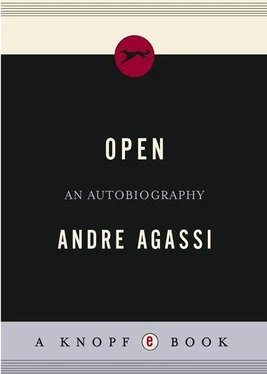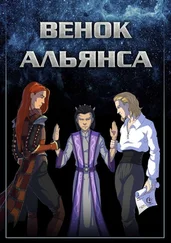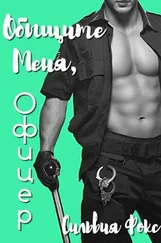Unknown - i a3f9967826fa0ec9
Здесь есть возможность читать онлайн «Unknown - i a3f9967826fa0ec9» весь текст электронной книги совершенно бесплатно (целиком полную версию без сокращений). В некоторых случаях можно слушать аудио, скачать через торрент в формате fb2 и присутствует краткое содержание. Жанр: Старинная литература, на английском языке. Описание произведения, (предисловие) а так же отзывы посетителей доступны на портале библиотеки ЛибКат.
- Название:i a3f9967826fa0ec9
- Автор:
- Жанр:
- Год:неизвестен
- ISBN:нет данных
- Рейтинг книги:5 / 5. Голосов: 1
-
Избранное:Добавить в избранное
- Отзывы:
-
Ваша оценка:
- 100
- 1
- 2
- 3
- 4
- 5
i a3f9967826fa0ec9: краткое содержание, описание и аннотация
Предлагаем к чтению аннотацию, описание, краткое содержание или предисловие (зависит от того, что написал сам автор книги «i a3f9967826fa0ec9»). Если вы не нашли необходимую информацию о книге — напишите в комментариях, мы постараемся отыскать её.
i a3f9967826fa0ec9 — читать онлайн бесплатно полную книгу (весь текст) целиком
Ниже представлен текст книги, разбитый по страницам. Система сохранения места последней прочитанной страницы, позволяет с удобством читать онлайн бесплатно книгу «i a3f9967826fa0ec9», без необходимости каждый раз заново искать на чём Вы остановились. Поставьте закладку, и сможете в любой момент перейти на страницу, на которой закончили чтение.
Интервал:
Закладка:
Next I play Xavier Malisse, from Belgium. He moves admirably well and has a slingshot of an arm. He features a meaty forehand and an acing serve, but he’s not consistent. Also, his backhand is mediocre: it looks as if it should be great, because he’s so comfortable hitting it, but he’s more interested in the way it looks than actually executing it. He simply cannot hit a backhand up the line, and if you can’t do that, you can’t beat me. I control the court too well. If you can’t hit a backhand up the line, I’ll dictate every point. An opponent has to move me, stretch me off the mark, put me in a position where I’m dealing with him, or else he’ll have to play on my terms. And my terms are harsh. Especially as I get older.
The night before the match, I have a drink with Courier at the hotel. He warns me that Malisse is playing well.
Maybe, I say, but I’m actually looking forward to it. You won’t hear me saying this often, but this is going to be fun.
The match is fun, like a puppet show. I feel as if I’m holding a string and each time I pull it, Malisse jumps. I’m astonished, yet again, by the connection between two players on a tennis court. The net, which supposedly separates you, actually links you like a web. After two bruis-ing hours you’re convinced that you’re locked in a cage with your opponent. You could swear that his sweat is spraying you, his breath is fogging your eyes.
I’m up two sets to none, dominating. Malisse has no faith in himself. He doesn’t believe he belongs out here. But as the third set starts Malisse finally gets tired of being pulled from side to side. Such is life. He gets mad, plays with passion, and soon he’s doing things that surprise even himself. He’s hitting that backhand up the line, crisply, consistently. I glare at him with an expression that says, I’ll believe that if you keep doing it.
He keeps doing it.
I see relief in his face and body language. He still doesn’t think he’s going to win, but he does think he’s going to make a good show, and that’s enough. He takes the third set in a tiebreak. Now I’m livid. I have better things to do than stand out here with you for another hour. Just for that, I’m going to make you cramp.
But Malisse isn’t taking orders from me anymore. One set, one little set, has completely changed his demeanor, restored his confidence. He’s no longer afraid. He only wanted to make a good show, and he has, so now he’s playing with house money. In the fourth set our roles reverse, and he dictates the pace. He wins the set and ties the match.
In the fifth set, however, he’s spent, whereas I’m just beginning to draw on funds long deposited in the Bank of Gil. It isn’t close. Coming to the net, he smiles, accords me tremendous respect. I’m old, and he’s made me older, but he knows that I’ve made him work, that I’ve forced him to dig deep and learn about himself.
In the locker room, Courier finds me, punches my shoulder.
He says, You called your shot. You told me you were going to have fun—you looked like you were having fun.
Fun. If I had fun, why do I feel as if I got hit by a truck?
I’M READY FOR A MONTH IN A HOT TUB, but my next match looms, and my opponent is playing like a man possessed. Blake. He smoked me the last time we met, in D.C., by getting and staying aggressive. Everyone says he’s grown steadily better since that day.
My only hope is that he doesn’t play aggressive this time out. Especially since it’s cooler.
In cool weather the court in New York plays slower, which favors a guy like Blake, who’s so damned fast. On a slow court Blake can get to everything, and you can’t, and thus he can make you press. You feel a need to do more than you normally do, and from there everything goes haywire.
The moment we step onto the court, my worst nightmare comes true. Blake is Mr. Aggressive, standing inside the baseline on my second serves, taking full cuts off both wings, making me feel urgency right from the opening minute. He smothers me in the first set, 6–3.
In the second set he gives me a second helping of the same: 6–3.
Early in the third set the match takes on shades of Malisse. Except I’m Malisse. I can’t beat this guy, I know I can’t, so I may as well just try to give a good show. Freed from thoughts of winning, I instantly play better. I stop thinking, start feeling. My shots become a half-second quicker, my decisions become the product of instinct rather than logic. I see Blake take a step back and register the change. What just happened? He’s been beating my brains in for seven straight rounds, and at the end of the eighth I land one sneaky punch, wobbling him just as the bell rings. Now he’s walking to his corner, unable to believe that his hobbled, demoralized opponent still has life.
Blake has a huge following in New York, and they’re all here tonight. Nike, which no longer endorses me, gives his supporters T-shirts and urges them to cheer. When I outplay Blake in the third, they stop cheering. When I win the set, they fall silent.
Throughout the fourth set, Blake’s panicking, no longer being aggressive. I can see him thinking, can almost hear him thinking: Damn, I can’t do anything right.
I win the fourth set.
Now that Blake has seen the benefits of my not thinking, he decides he’s going to try it. As the fifth set unfolds, he turns off his brain. At last, after nearly three hours, we meet on equal terms. We’re both on fire, and his on-fire is slightly better than my on-fire. In the tenth game he has a chance to serve out the match.
Then he starts thinking again. The contrarian brain. He presses, I hit three first-class returns, break him, and the crowd changes its mind. They chant, An-dre, An-dre.
I serve. I hold.
During the changeover the stadium sounds like a rock concert. My ears are ringing. My temples are pounding. It’s so loud that I wrap my head in a towel.
He serves. He holds. We’re going to a tiebreak.
I’ve heard old-timers say that the fifth set has nothing to do with tennis. It’s true. The fifth set is about emotion and conditioning. Slowly I leave my body. Nice knowing you, body. I’ve had several out-of-body experiences over my career, but this one is healthy. I trust my skill, and I step out of its way. I remove myself from the equation. At match point, 6–5, I hit a solid serve. He returns to my forehand. I hit a quality ball to his backhand. He’s moving around it, and I know—mistake. If he’s running around my quality ball, that means he’s pressing. He’s not thinking clearly. He’s putting himself out of position, letting the ball play him. He’s not giving himself an opportunity to hit the best possible shot. Thus I know that one of two things is about to happen. He’s going to be handcuffed by my ball and hit it weakly. Or he’s going to be forced into an error.
Either way, I have a pretty good idea the ball is coming right here. I look at the spot where it’s sure to land. Blake wheels, throws his lower torso out of the way and coldcocks the ball. It lands ten feet from where I expected. Winner.
I was completely wrong.
I do the only thing I can do. Walk back. Prepare for the next point.
At six–all we have a murderous rally, backhand to backhand, and I’m a big loose bag of rattling nerves. In a ten-stroke backhand rally, you know somebody’s going to raise the stakes at any moment, and you’re always sure it’s going to be your opponent. I wait. And wait. But with each stroke, Blake doesn’t raise the stakes. So it falls to me. I step in as if I’m going to cane the ball and instead I hit a backhand drop shot. I’m all in.
There are times in a match when you want to put just a solid, serviceable swing on the ball, but your blood is so full of adrenaline that you hit it big. This happens often to Blake, not with his swing but his speed. He runs faster than he means to run. He feels so much urgency that he sprints to a ball and gets there sooner than he anticipated. This is what happens now.
Читать дальшеИнтервал:
Закладка:
Похожие книги на «i a3f9967826fa0ec9»
Представляем Вашему вниманию похожие книги на «i a3f9967826fa0ec9» списком для выбора. Мы отобрали схожую по названию и смыслу литературу в надежде предоставить читателям больше вариантов отыскать новые, интересные, ещё непрочитанные произведения.
Обсуждение, отзывы о книге «i a3f9967826fa0ec9» и просто собственные мнения читателей. Оставьте ваши комментарии, напишите, что Вы думаете о произведении, его смысле или главных героях. Укажите что конкретно понравилось, а что нет, и почему Вы так считаете.






